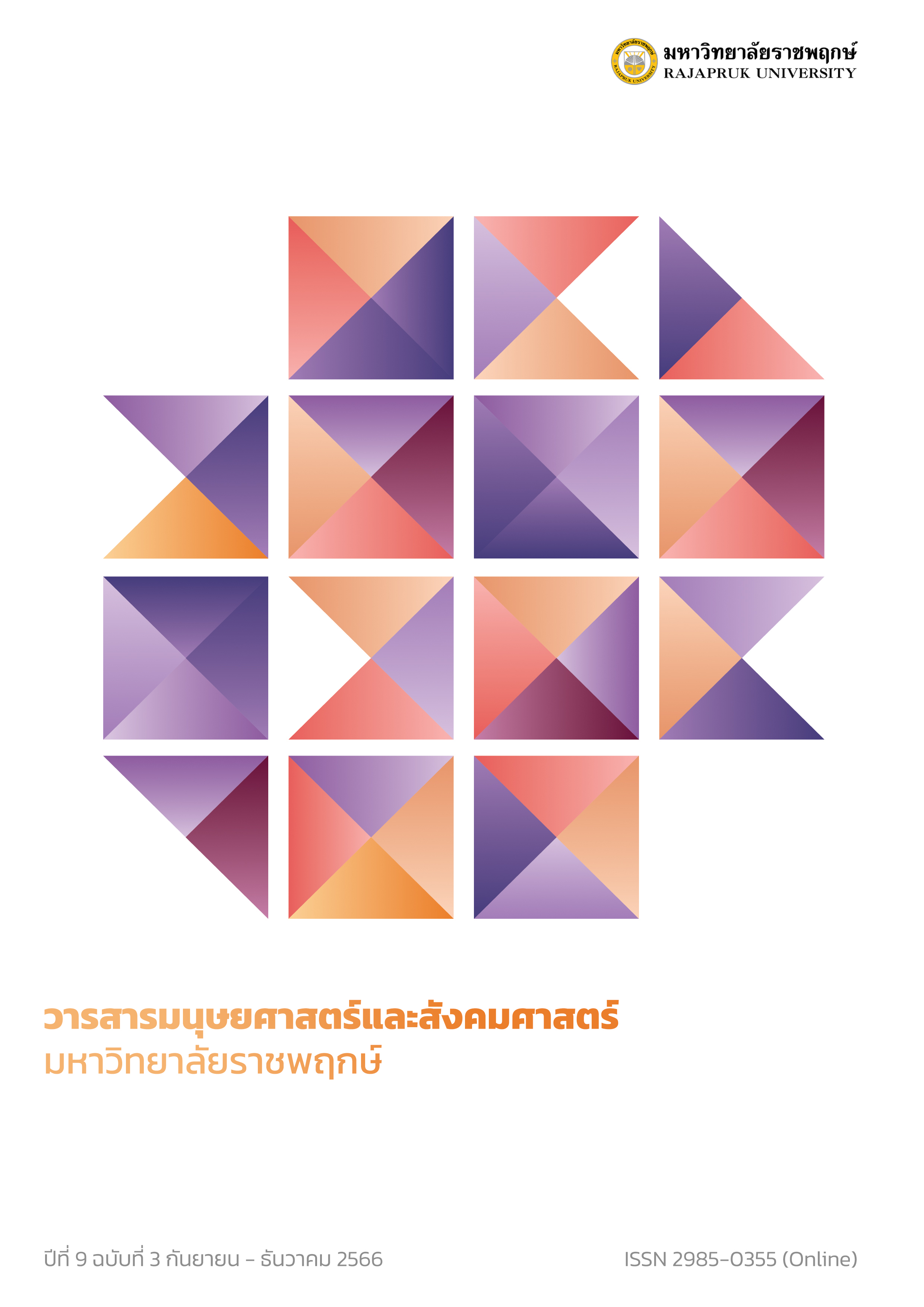Enhancement Process of Performance Agreement Abilities by Using Principles of Assessment for Learning and Profession
Main Article Content
Abstract
The objectives of this study were to 1) synthesize the principles of the enhancement process of performance agreement abilities, and 2) synthesize the enhancement process of performance agreement abilities by using principles of assessment for learning and the professional learning community. The target groups used in the study were: 1) documents and research related to assessment for learning and the professional learning community that were published during the years 2002–2021, and 2) seven experts in education administration and assessment for learning and the professional learning community. The instruments used to collect information were: 1) a record form of the synthesis of the principles of the enhancement process of performance agreement abilities, and 2) an appropriateness evaluation form of the enhancement process of performance agreement abilities. The data was analyzed by content analysis. In terms of principles of the professional learning community and assessment for learning, process principles were synthesized to consider the appropriateness of the enhancement process of performance agreement abilities with median and interquartile range.
The findings of this study were as follows: 1) The principles of the process consisted of five principles: 1. provide opportunities for teachers to set goals to improve learners' learning outcomes; 2. provide opportunities for teachers to practice observation and analysis skills; 3. encourage teachers to exchange knowledge; 4. encourage teachers to self-assess and peer assess; and 5. provide opportunities for teachers to be thought leaders and make academic decisions. This led to the process of enhancing operational capability in 5 steps, as follows: 1. self-development creation community 2. Performance goal setting 3. Performance planning 4. performance implementation, and 5. performance appraisal. 2) The experts had a consistent opinion that the enhancement process of performance agreement abilities by using principles of assessment for learning and professional learning communities was appropriate at the highest level. The success of the process is that the administrator should be aware of the importance of a performance agreement for developing and participating in work and should support it throughout the process.
Article Details
References
เกรียง ฐิติจำเริญพร. (2560). การพัฒนากระบวนการนำครูใหม่เข้าสู่วิชาชีพ โดยใช้แนวคิดการพัฒนาบทเรียนร่วมกันเป็นฐานร่วมกับการเป็นพี่เลี้ยง เพื่อเสริมสร้างความสามารถในการออกแบบการเรียนการสอน. วิทยานิพนธ์ ครุศาสตรดุษฎีบัณฑิต จุฬาลงกรณ์มหาวิทยาลัย.
พัชนี กุลฑานันท์, พิสิฐ เมธาภัทร, ไพโรจน์ สถิรยากร และ มนต์ชัย เทียนทอง. (2554). การพัฒนารูปแบบการฝึกอบรมครูแบบผสมผสานในการทำวิจัยในชั้นเรียน. วารสารมหาวิทยาลัยราชภัฏมหาสารคาม, 5(2): 97–115.
เรวณี ชัยเชาวรัตน์. (2558). กระบวนการเสริมสร้างความสามารถในการออกแบบการเรียนการสอนของนักศึกษาปฏิบัติการวิชาชีพครูตามแนวคิดชุมชนแห่งการเรียนรู้ทางวิชาชีพ. วิทยานิพนธ์ ครุศาสตรดุษฎีบัณฑิต จุฬาลงกรณ์มหาวิทยาลัย.
สำนักงานเลขาธิการสภาการศึกษา. (2555). ระบบโรงเรียนคุณภาพระดับโลกขึ้นมาสู่ความเป็นโรงเรียนคุณภาพชั้นนำได้อย่างไร. พิมพ์ครั้งที่ 3. กรุงเทพฯ: พริกหวานกราฟฟิค.
Assessment Reform Group. (2002). Assessment for Learning: 10 principles research based principles to guide classroom practice. Retrieved on August, 19th, 2022, from https://www.hkeaa.edu.hk/doclibrary/sba/hkdse/eng_dvd/doc/Afl_principles.pdf.
Darling–Hammond, Hyler, and Gardner. (2017). Effective teacher professional development. Retrieved on August, 19th, 2022, from https://learningpolicyinstitute.org/sites/default/files/product-files/Effective_Teacher_Professional_Development_REPORT.pdf.
Dufour, R. and et al. (2008). Revisiting professional learning communities at work: New insights for improving schools. Bloomington: Solution Tree.
Hord, S. and et al. (2010). Guiding professional learning communities: Inspiration, challenge, surprise, and meaning. California: Corwin Press.
Kennedy, A. (2005). Models of continuing professional development: a framework for analysis. Journal of In-service Education, 30(2): 235–250.
Moore, D. (2018). 8 Steps to effective professional development. Retrieved on August, 19th, 2022, from https://artsintegration.com/2018/06/01/8-steps-effective-professional-development.


